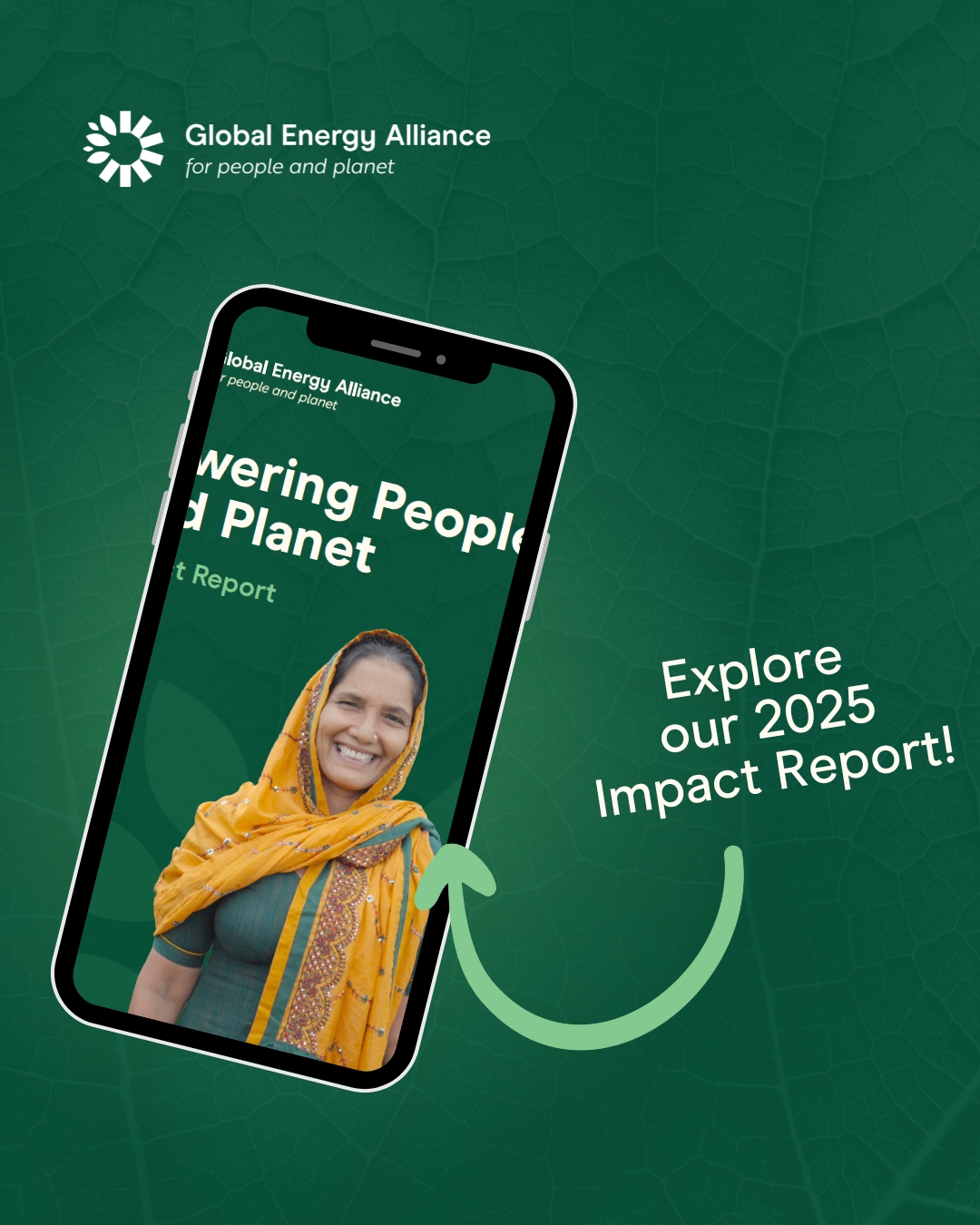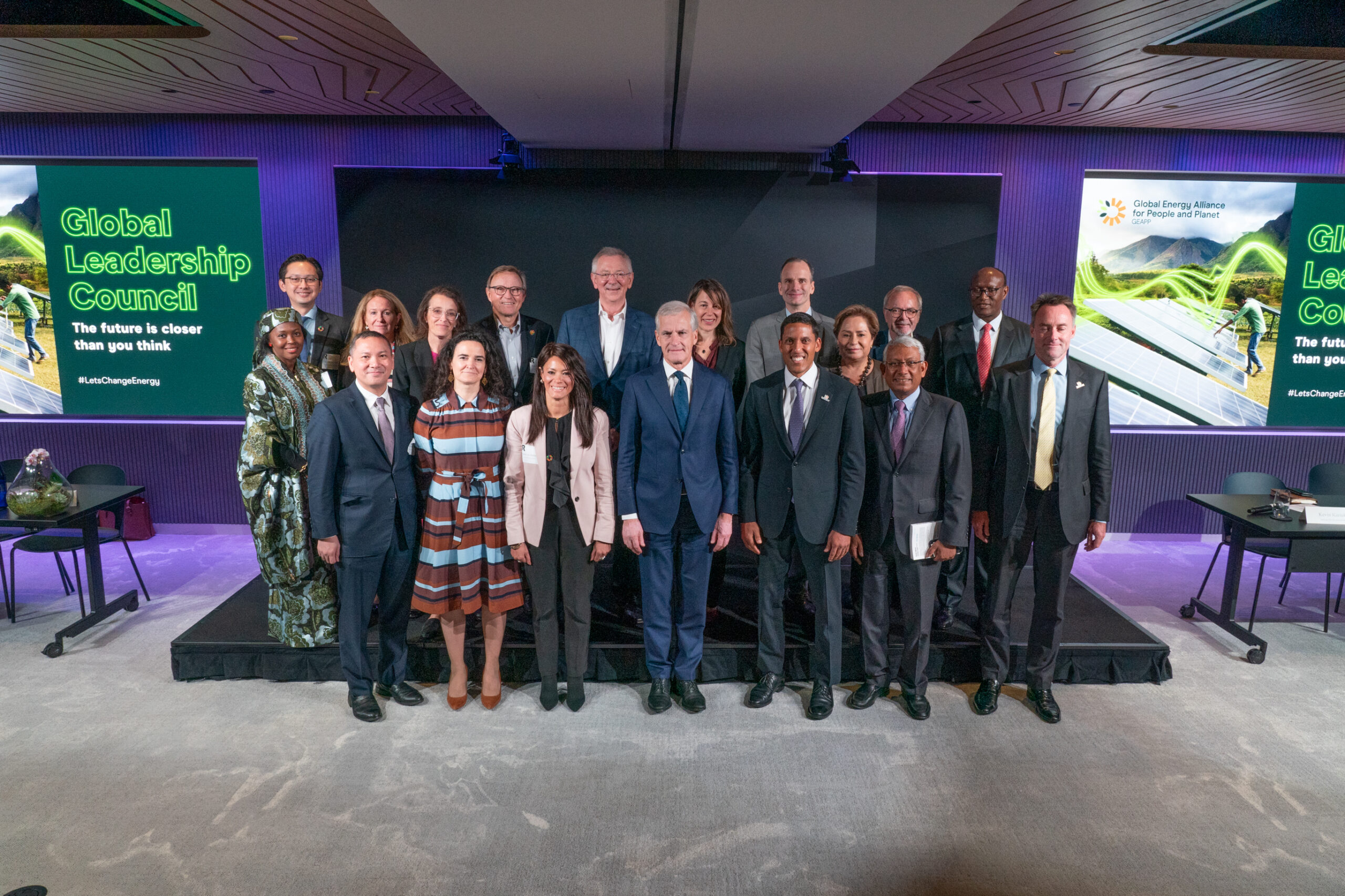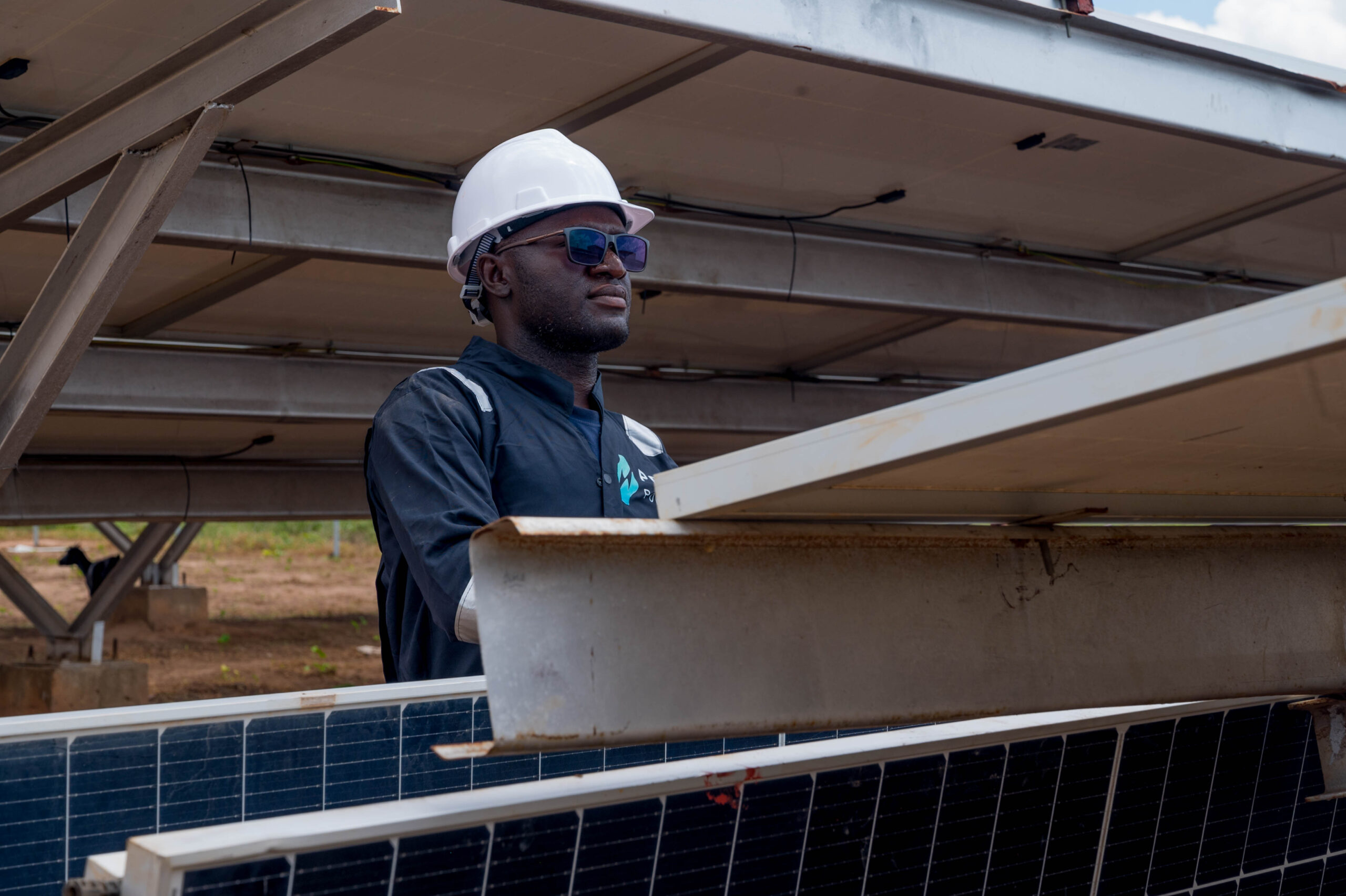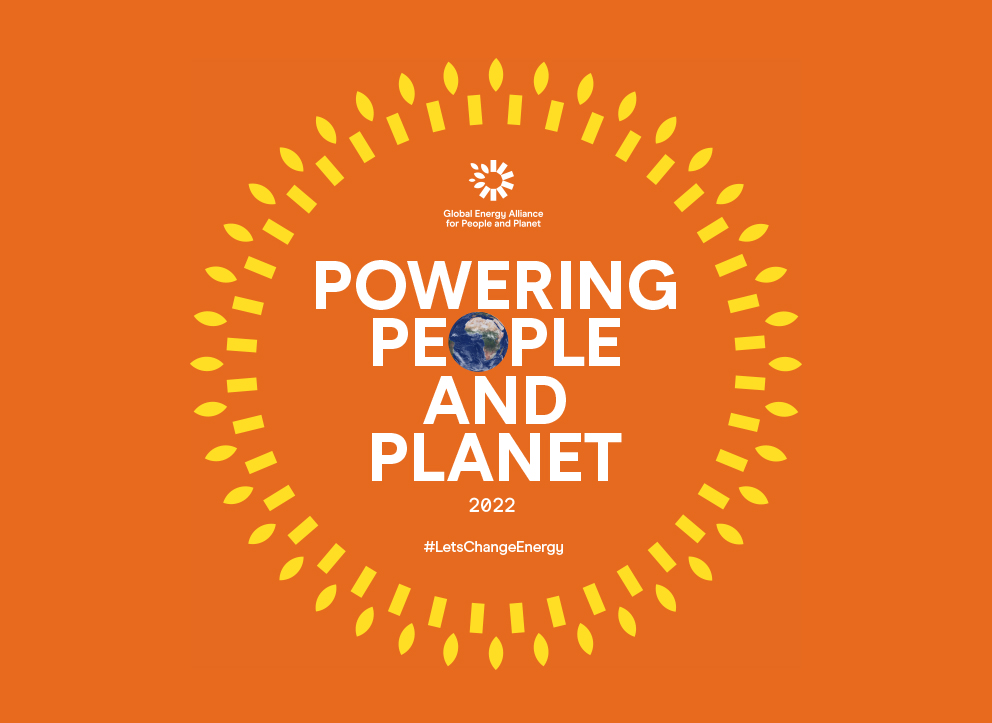What’s Missing in the Climate Discussions? The Power of Emotions

Like the COPs before it, COP28 opened with a focus on the global challenges the world is facing. 2023 was marked by broken temperature records, violence, wars, injustices, natural disasters, and poverty. This whirlwind of adversities can make people feel hopeless, however, for the delegates of COP28, 2023 ended with a unique opportunity to realize how we can build a more equitable and sustainable future.
To meet the moment, the Climate of Emotions session premiered at the COP28 SDG7 Global South Pavilion, hosted by Sustainable Energy for All (SEforALL) and the Global Energy Alliance for People and Planet (GEAPP). Climate of Emotions comes from Six Seconds, the global emotional intelligence organisation.
How are emotions relevant to the important work at COP28? The climate crisis and the energy transition are not just environmental or political issues—they are deeply emotional ones, especially for the people and communities most affected. Typically these climate convenings present policies, technologies, and call for innovations. But there’s a vital, often overlooked aspect: the role of emotions in driving effective change. Leaders are biased to ignore emotions and often lack the skills to utilize them, and so they fail to engage people effectively, especially when trying to address something as powerfully emotional as climate change.
Emotions move people. They make us buy products, cheer for our favorite team and vote in elections. But emotions are not being effectively included in the climate change conversation. A recent study identified emotions like shame, guilt, powerlessness, and confusion as keeping us from taking climate action, while emotions of concern, hope, and anger drive us to higher levels of engagement. Our emotions are not just reactions; they are the energy we need to get into the fight and drive change.
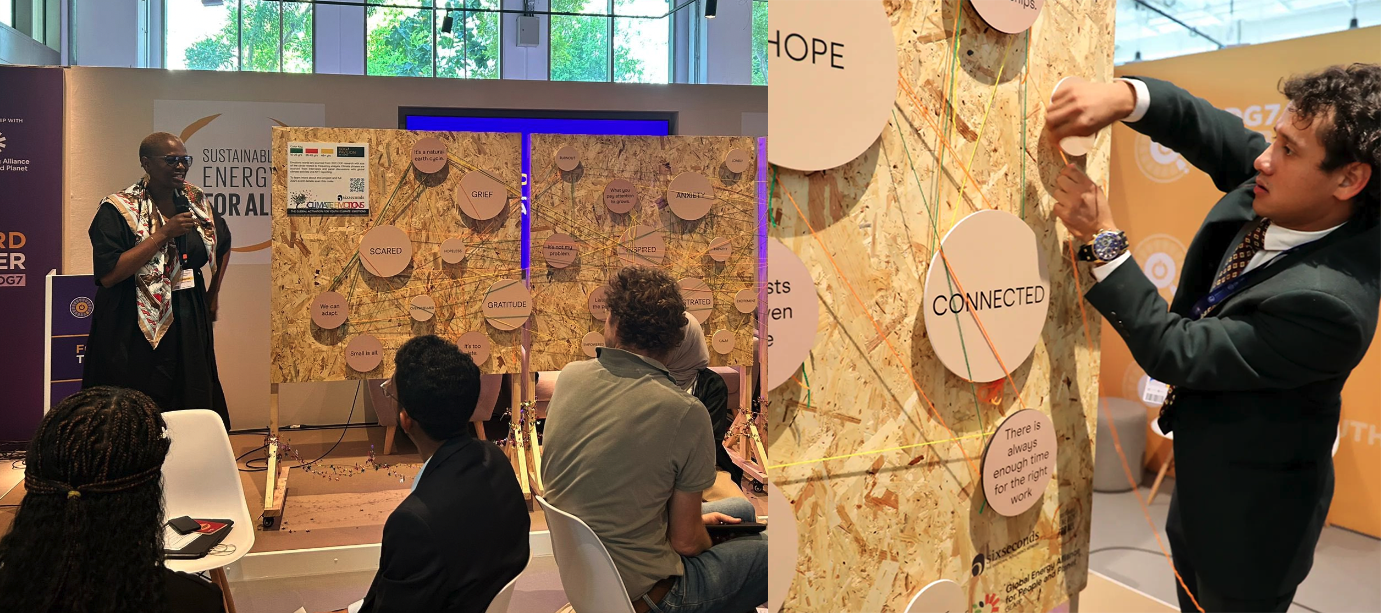
Wanjira Mathai, Managing Director for Africa and Global Partnerships at WRI, Africa Advisor for Bezos Earth Fund, and daughter of the first African woman and first environmental activist to win the Nobel Peace Prize, opened the Climate of Emotions session at COP28. In her words:
“Emotions are a form of renewable energy that can power people to change self and our world. To create a healthy global climate, we’ll need new approaches – and if we can deeply connect at an emotional level, we get the energy we need. Starting at the micro-level of connecting heart to heart, we can catalyze the changes we need at a macro level.”
How can emotions be a force for change? Emotions help us identify allies. People who are outraged together can organize action and amplify their collective message. People who grieve together share a bond united by collective loss. By fostering connections and building coalitions, people can transform their feelings into positive action. Challenging feelings like anxiety, anger and grief can be fuel for change. We need to develop more skills to transform emotions into action and innovation. By putting our collective anxiety and loss into words, we are able to envision a future worth fighting for.
The Climate of Emotions session began with a data visualization activity. Participants used colored strings to connect statements about climate, and how that affects people emotionally. From there, the SEforALL SDG7 Global Youth Ambassadors engaged participants in a moment of transparency: Sharing personal stories of their own emotions while engaging in climate work. Participants commented they’d never experienced this level of authenticity, and they left feeling something essential: We are allies in the climate crisis.
Climate change affects us all—but its impacts are inequitable.. It is essential to use empathy to create just solutions that support people and communities worldwide. While we may all intellectually understand our collective responsibility, until we feel what it is like to experience a natural disaster or how not having access to clean, reliable, and affordable electricity limits our own opportunities and those of our family, friends, and neighbors, we cannot grasp the scale or urgency of the problem. It is too easy to postpone, deflect, and disengage. Empathy is the connection between us, but global empathy levels are on the decline. To strengthen it, we must feel together.
Are there solutions to be found? Optimism, a key skill of emotional intelligence, is crucial for envisioning and working towards a sustainable future. Building a shared legacy of climate action; a safer, greener, more equitable planet is possible than anything we can create alone and is a key driver for people. COP28 showcased a vibrant and optimistic community of young people who, despite challenges, embodied the energy we so desperately need to realize a future powered by renewable energy. This can be a turning point, away from the devastation of our planet and deprivation of its people, to a more hopeful future where opportunity is universal. One thing is certain: Words are not enough. We need people – governments, activists, funders, media… all humanity – to take action. That action requires energy.
As we face these global challenges, let’s harness our emotions: empathy, optimism, and courage to catalyze change. Let’s change energy for good.
About the Authors
Axell Sutton is an SEforALL SDG7 Global Youth Ambassador. An energy engineer from Mexico, he has dedicated over a decade to promoting sustainable energy transition in Latin America. As an associate founder of multiple initiatives and author of “A guide for young persons to sustainable energy,” Axell is committed to empowering young energy leaders and spreading youth energy voices.
Joshua Freedman is the CEO and Cofounder of Six Seconds, a master certified coach, and adjunct at Columbia University and Antioch University. He is the bestselling author of At the Heart of Leadership, and is one of the lead coaches supporting Climate of Emotions – the global youth leadership accelerator supporting changemakers toward inner sustainability.
